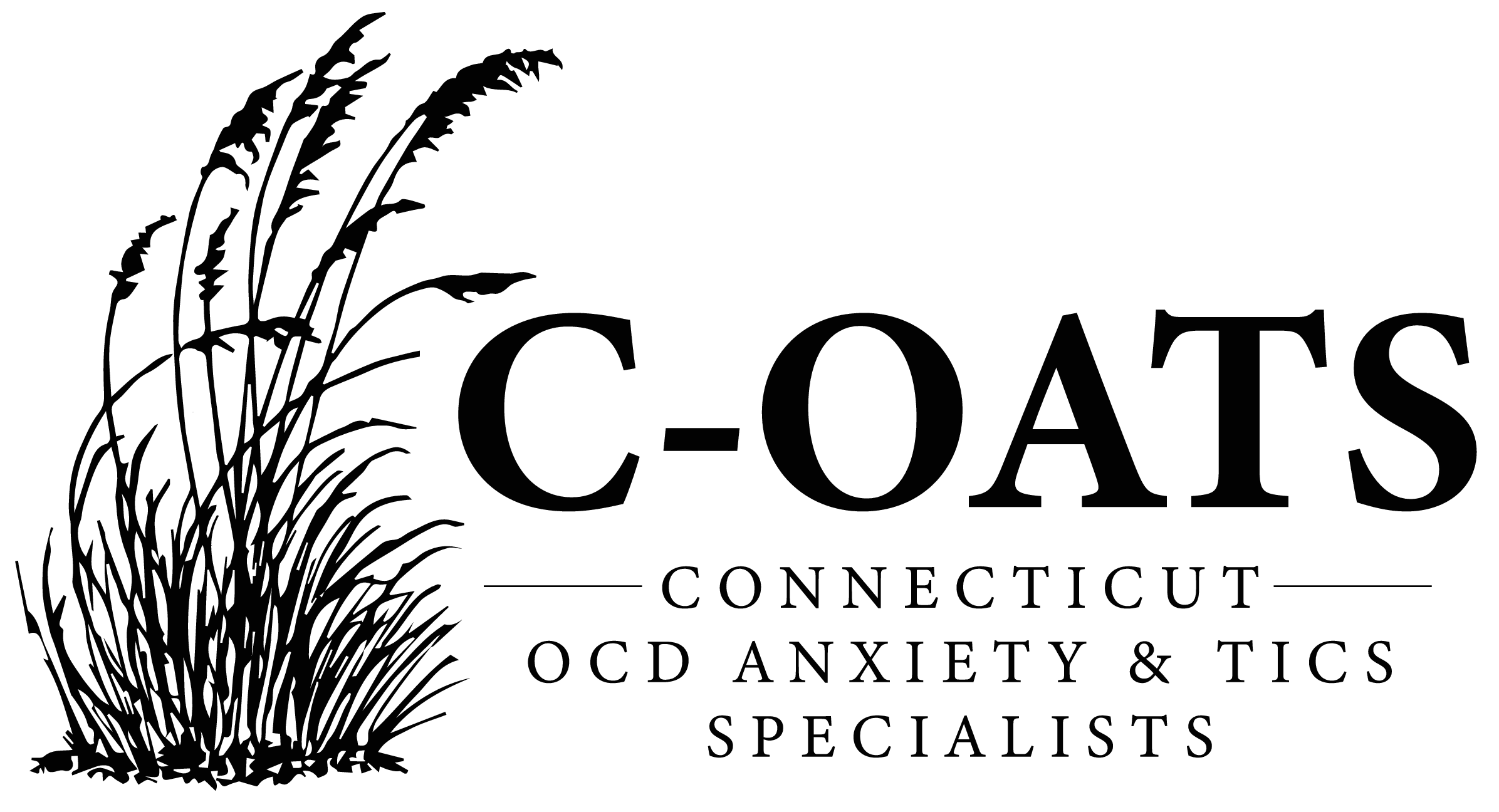Tics Specialist in Greenwich, CT
Effective Treatment for Tics in Children: Empowering Them to Thrive
At C-OATS in Greenwich, CT, we are dedicated to providing specialized care for children and adolescents with tics in Westchester County, Fairfield County, and the greater CT & NY region. Our experienced team of professionals is committed to helping your child effectively manage and reduce tic symptoms, improving their overall well-being.
Understanding Tics
Tics are sudden, rapid, repetitive movements or sounds that are difficult to control and are often preceded by urges (unusual and uncomfortable localized sensory experiences) which are somewhat alleviated by ticcing. They can range from mild to severe and may include motor tics (such as eye blinking, facial grimacing, or shoulder shrugging) or vocal tics (such as throat clearing, grunting, or repeating words or phrases). Tics can be disruptive and distressing for children, impacting their daily activities, social interactions, and self-esteem.
Types of Tics
There are two primary types of tics: motor tics and vocal tics. Motor tics involve sudden, repetitive, movements or vocalizations, while vocal tics involve sounds or speech. Tics can vary in frequency, duration, and complexity. Understanding the specific type and characteristics of your child’s tics is important in determining the most appropriate treatment approach.

Effective Treatment Options for Tics
Comprehensive Behavioral Intervention for Tics (CBIT)
At C-OATS, we offer comprehensive treatment options for tics, tailored to meet the unique needs of each child. Our primary treatment method is Comprehensive Behavioral Intervention for Tics (CBIT), which is internationally recognized as the front-line treatment for Tourette’s Disorder. Researched by Dr. Specht and colleagues in collaboration with the Tourette’s Association of America (TAA) and leading academic medical centers, it can be equally as effective as medication but without the associated side effects. Like with other conditions, both medications and CBIT can be helpful – but unlike medications which have some side effects, CBIT has none.
CBIT focuses on teaching tic management strategies, empowering children to gain control over their tics and reduce their impact on daily life. This evidence-based treatment approach involves systematically targeting specific tics and teaching kids strategies to help them effectively suppress each tic. It is a safe and effective method that most patients can quickly learn. CBIT does not result in worsening tics at home, and it has been shown to have long-term benefits for tic reduction.
Causes of Tics
The exact cause of tics is not fully understood, but research suggests a combination of genetic, neurobiological, and environmental factors may contribute to their development.
Tics are core feature of Tourette’s and other tic disorders, but they can also occur in isolation. Stress, anxiety, and fatigue may exacerbate tic symptoms. Our team of specialists at C-OATS is experienced in assessing the underlying causes and providing targeted treatment for tics.
Our Approach
At C-OATS, our approach to treating tics is rooted in evidence-based practices and personalized care. We understand that each child’s journey with tics is unique, and we tailor our treatment plans accordingly. Our multidisciplinary team works collaboratively to provide comprehensive care that addresses the specific needs of your child.
We emphasize a combination of evidence-based treatments, including CBIT, individual therapy, and family support. Our team is also highly experienced in providing consultations to prescribers to ensure proper medication regimen. Our goal is to help your child gain control over their tics, reduce their impact on daily functioning, and improve overall quality of life.
Why Choose C-OATS for Tics Treatment
At C-OATS, we are your trusted tics specialists in Greenwich, CT. We provide expert care and guidance for children and adolescents struggling with tics. Here’s why you should choose us for your child’s tics treatment:
Specialized Expertise: Our team consists of experienced professionals who specialize in diagnosing and treating tics. We have in-depth knowledge of the latest research and treatment approaches.
Personalized Approach: We understand that every child is unique, and we tailor our treatment plans to meet their specific needs. Our individualized approach ensures the most effective and targeted care.
Collaborative Care: We believe in a collaborative approach, working closely with parents, schools, and other healthcare providers to provide comprehensive and coordinated care for your child.
Evidence-Based Practices: Our treatments are based on evidence-based practices, including CBIT, which has been proven to be highly effective in managing tics and improving overall functioning.
Compassionate Environment: We create a compassionate and supportive environment where your child can feel comfortable and empowered throughout their treatment journey.
Tips for Helping Your Child with Tics
Supporting your child with tics can make a significant difference in their well-being. Here are some tips to help your child:
- Educate Yourself: Learn more about tics and their impact on your child’s life. This understanding will enable you to provide better support and empathy.
- Open Communication: Encourage your child to talk openly about their tics and how they feel. Create a safe space where they can express themselves without judgment.
- Supportive Environment: Foster a supportive and accepting environment at home and in social settings. Encourage understanding and empathy among family members, friends, and teachers.
- Patience and Understanding: Be patient and understanding with your child. Tics are quasi-involuntary, and your child does not have full control over them. Avoid drawing unnecessary attention or making them feel self-conscious.
- Promote Relaxation Techniques: Teach your child relaxation techniques such as deep breathing exercises or mindfulness to help manage stress and reduce tic severity.
- Advocate for your Child: Be an advocate for your child’s needs at school and other settings. Educate teachers and peers about tics to foster understanding and minimize potential misunderstandings.
- Encourage Healthy Lifestyle: Promote a healthy lifestyle with regular exercise, balanced nutrition, and adequate sleep. These factors can help manage tic symptoms.
- Seek Professional Help: If your child’s tics significantly impact their daily life, it is important to seek professional help from a qualified tics specialist like C-OATS. Our team will provide a comprehensive assessment and develop an individualized treatment plan for your child.
FAQs
What are tics?
Tics are sudden, repetitive, involuntary movements or sounds that occur repeatedly. They can range from simple, brief movements or vocalizations to more complex actions.
Are tics a sign of a serious medical condition?
In most cases, tics are not a sign of a serious medical condition. They are often benign and temporary. However, if tics significantly interfere with daily functioning or are accompanied by other concerning symptoms, it’s important to consult a healthcare professional for further evaluation.
How common are tics in children?
Tics are relatively common in children, with about 10-20% of children experiencing tics at some point during their childhood. They are more common in boys than girls.
Can tics be cured?
While there is no cure for tics, they can be effectively managed and controlled with appropriate treatment. Many children experience a decrease in tic severity and frequency over time.
What is Comprehensive Behavioral Intervention for Tics (CBIT)?
Comprehensive Behavioral Intervention for Tics (CBIT) is a leading treatment approach for tics. It involves teaching patients to recognize their tic sensations, engage in competing behaviors that are incompatible with the tic, and learn strategies to reduce tic-related distress.
How effective is CBIT in treating tics?
CBIT has been shown to be highly effective in reducing tic severity and improving overall functioning in individuals with tics. It is considered the front-line treatment for tics and is recommended by experts in the field.
Are medications necessary for tic treatment?
Medications may be considered as part of the treatment plan for tics, especially when tics are severe and significantly impact daily functioning. However, medication is not always necessary and is typically used in conjunction with behavioral interventions like CBIT.
How long does tic treatment take?
The duration of tic treatment can vary depending on the individual and the severity of the tics. It is typically a combination of short-term and long-term interventions. The treatment plan will be tailored to meet the specific needs of the child.
Can tics worsen over time?
In some cases, tics may worsen temporarily due to stress, anxiety, or other factors. However, for the majority of individuals, tics tend to improve or stabilize over time, especially with appropriate treatment and support.
Managing Tics in Children: A Comprehensive and Practical Guide for Parents
Recognizing Tics in Your Child Tics are unexpected, swift, and involuntary movements or sounds that your child might make. They can take the form of motor tics, such as repetitive blinking, shoulder shrugging, or sudden head jerking. Alternatively, they can manifest...
Tics in Children: A Brief Guide
Tics are a relatively common occurrence, particularly among children. They are often harmless but can sometimes cause distress or interfere with everyday activities. This article explores what tics are, their different types, the disorders they're associated with, and...
Talk With Us
WE LOOK FORWARD TO HEARING FROM YOU. A MEMBER OF THE C-OATS TEAM WILL RESPOND BACK WITHIN 24-48 HOURS UPON RECEIVING YOUR MESSAGE.




